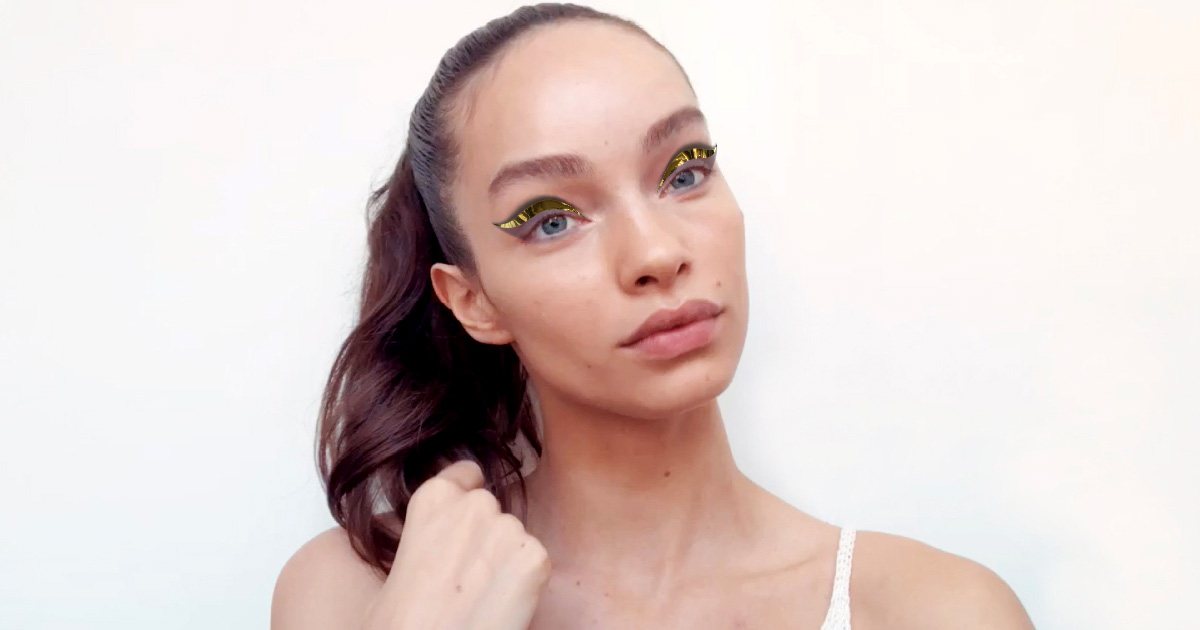L’Oréal Paris has launched its first virtual make-up line that works on live video using augmented reality (AR) technique.
When the COVID-19 pandemic hit, it demanded everyone to adapt to change quickly. The cornerstone of our pandemic adaptation is videoconferencing apps or online meetings. With millions of people being forced to stay home to help stop the spread of COVID-19, many have found creative ways to virtually stay social. We are now, rarely stepping out of the house these days.
For most of the people around the globe, the method of staying connected means more sweatpants and pajamas with loose tees, less glamor, and more video calls instead of face to face meetings. Looking at this, Cosmetics brand L’Oréal Paris has launched a “digital make-up line” that works on live video using augmented reality (AR) technique.
As per the company, it is L’Oréal’s first virtual make-up line that will make users look photoshoot-ready in their Zoom meetings. The cosmetics company is branding these AR filters as “virtual make-up”. The digital make-up tool lets social media users try out different looks on Instagram, Snapchat, Snap Camera, and Google Duo for free.
The new filters are dupped as “Signature Faces” and are available in ten virtual filters across three themes: Volumizing capsules, plump shot, and fire match. With these filters, people can even experiment with varying makeup textures.
Virtual make-up service in response to the pandemic:
This new digital make-up line service that works on live video using augmented reality technology has been designed in response to the ongoing challenges that the make-up industry is facing due to the coronavirus pandemic. The major reason behind building this service was because there was a high drop in revenue in the beauty sector since the first lockdown started in almost all countries of the world as the make-up industry heavily relies on users testing the products in person to ensure the colour match of the product with their skin.
It has been estimated that the beauty sector could lose approximately 30 percent of its yearly revenue by the end of the year. According to the reports, this is L’Oréal’s very first digital cosmetics line that might make consumers look photoshoot-ready for their subsequent online meetings.
Coronavirus-led disaster by now has actually made us look for the technology that we by no means imagined we might ever use. And this new technique of using virtual make-up is certainly a circumstance of the new expectations and needs of the people.
Signature Faces:
Signature Faces was created by creative agency Virtue. The Signature Faces collection was co-created by Val Garland, a London-based makeup artist and author of Validated – and L’Oréal Paris Global Makeup Director. The L’Oréal Paris global make-up artists also helped, with 3D artists Ariel Lu and Sylvain Gaussens.
L’Oréal’s website goes on to describe the products as “undefined by physical limits, a range that breaks the boundaries of classical makeup to sign your digital look with confidence and audacity.”
These signature faces work on Snapchat and Instagram so that users can virtually wear the products on live video chats on the platform. The company is also releasing one “exclusive look” on Google Duo, the first beauty product to be used directly on Google’s video conference system.
“We believe you are beautiful as you are, but in a world where the camera is always on, if you want to play around with some filters then we think that is ok too,” says the page about the product on the company’s website. Through these new filters that the users will use during live video calls, the company just wants to introduce a whole new experience of modern makeup.
With the help of these filters, we can now make our video calls look more interesting by virtually overlaying some fun eye shadow, lipstick, or even eyelashes.
As the consumers moved to social media and video chats during the lockdown, the beauty world needs to reach customers virtually rather than the make-up counter or beauty salons. This new technique will enable users to express themselves in online social encounters.

